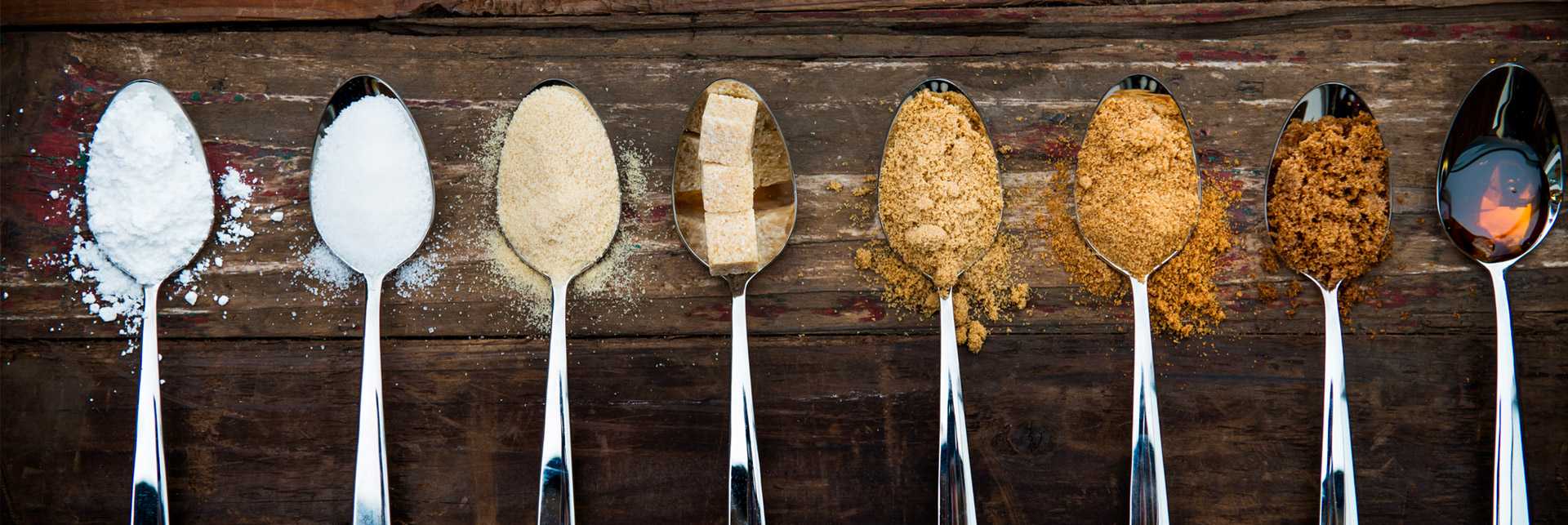There has been a lot of discussions and debates about how sugary substance has become a food staple, the implications of sugar on our health, and which sugar source should be the ultimate choice.
The internet is riddled with countless blogs and articles, and it seems that marketing ploys have made it almost impossible for us to eat healthily. When it comes to health, sugar has a bittersweet reputation as it causes higher blood pressure, inflammation, diabetes, and weight gain – all underlying causes of cardiovascular diseases.
Lately, various sugar alternatives have gained the attention of health-conscious people, and they merited some reconnaissance. The article examines the nutritional and health benefits of cane, coconut, and date sugar.
Date Sugar
Apparently, date sugar resembles with brown sugar but its composition is completely different. Unlike other forms of sugar, date sugar is a powder made purely from 100% ground dried dates, and when it comes to choosing dietary sugar, nothing beats the health benefits of date sugar.
Why Date Sugar?
Date sugar is abundantly rich with minerals, such as magnesium and copper, a fantastic source of fiber, and packed with antioxidants, like lutein, zeaxanthin, and beta-carotene.
Switching to date sugar introduces multiple health benefits, such as prevention from oxidative damage, healthy gut health, and enhanced immune system.
Let’s find out more about the advantages of date sugar.
- An Organic Sweetener Packed with Fiber
Unlike cane sugar, in which the whole fruit is not used to get the crystalline sugar, date sugar is a dried and milled version of the whole fruit. Due to this attribute, date sugar is packed with dietary fiber. A 100 calories of date sugar provides roughly around 3 grams of fiber.
Moreover, its fiber content buffers sugar absorption that keeps your blood sugar level under check. This characteristic also helps you to tame your sugar cravings while keeping your taste buds feel more satisfied.
- Nutritional Benefits of Date Sugar
Dates are healthy, and there is no doubt about it. Whole dates possess a copious amount of potassium, magnesium, copper, manganese, fiber, vitamin B3, and vitamin B6. Date sugar is the grounded form of dates, which means it possesses all the nutritional benefits of whole dates.
Most of these vitamins and minerals are difficult to acquire through processed items as they get destroyed by heat.
- Natural Antioxidant
Dates are part of our diet for centuries due to their innumerable health benefits and antioxidant characteristics. Date sugar is rich in Beta Carotene, Lutein, and Zeaxanthin, which protect the cells from oxidative stress, free radicals, and macular degeneration.
Furthermore, date sugar contains a high quantity of tannins, which keeps your digestive system robust and fight off infections.
Cane Sugar
Generally known as table sugar, granulated sugar, or regular sugar is the most commonly used form of sugar. Extracted from sugar cane, it consists of 95% sucrose and 5% molasses. The sucrose breaks down to glucose and fructose when digested. Sucrose is a disaccharide made up of 50% glucose and 50% fructose.
Cane sugar possesses no fiber content as it is a highly processed product and loses all the fiber content during processing. A number of online articles suggest that cane sugar contains polyphenols, minerals, and benefits without scientific grounds.
Cane sugar, both raw and refined, is responsible for increased blood sugar, causes weight gain, increases the risk of heart diseases, the primary reason for type 2 diabetes, and contributes to increasing depression. It is because when you consume excess sugar, the insulin in your bloodstream affects your arteries, making them thicker and inflamed that leads to various health problems.
Coconut Sugar
Due to the health implications of regular cane sugar, we have seen a significant shift towards coconut sugar, especially in Southeast Asian countries.
Comparatively, this sugar is way more health-friendly than cane sugar because it contains minerals, such as iron, zinc, calcium, and potassium; however, you would have to consume 25 teaspoons to get 2mg of each. It means you have to consume additional quantities of coconut sugar to get the nutritional benefits.
Notably, coconut sugar is also made up of 70-80% sucrose; therefore, it is not a very healthy alternative to regular sugar. It is because the coconut sugar supplies the same amount of fructose as regular sugar. Our body converts fructose to glucose in the liver for energy, which places additional burden on the liver causing metabolic problems.
The Conclusion
In light of the above comparison, we can conclude that date sugar beats its competitors by leaps. It is an organic form of natural sweetener packed with fiber, vitamins, minerals, and antioxidants. Whereas the cane and coconut sugars offer little to no nutritional benefits, and are loaded with fructose that is the underlying problem of numerous health problems.
In a nutshell, you can sweeten up your desserts with date sugar without having to worry about the side effects.
